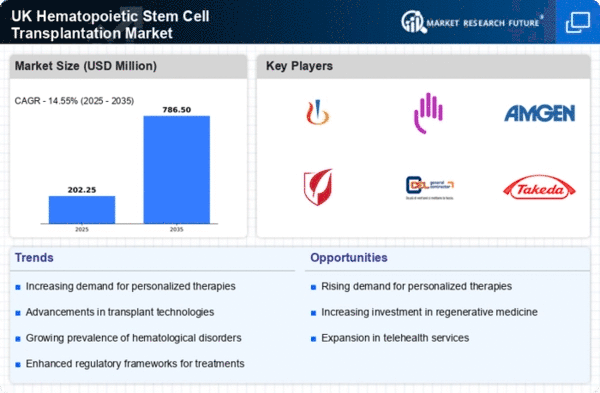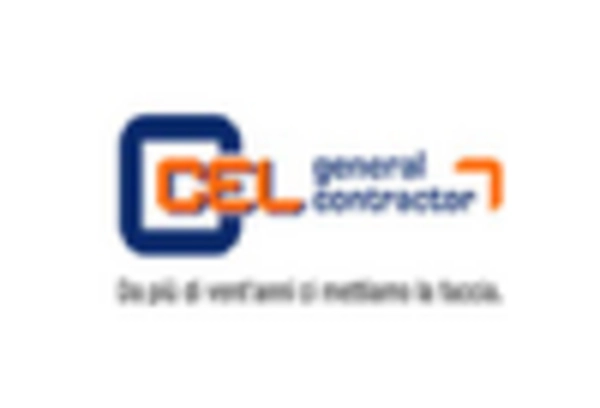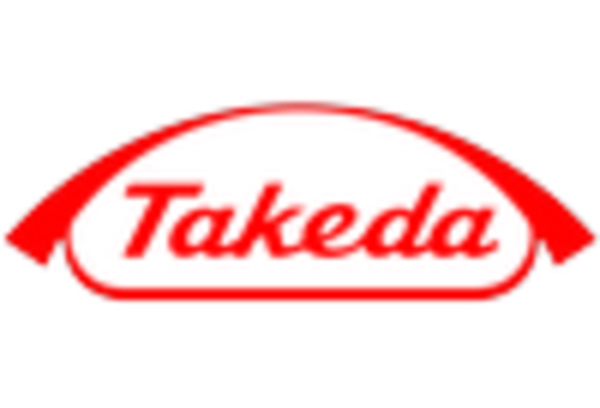Government Initiatives and Funding
Government support and funding for hematopoietic stem-cell-transplantation research and programs are vital drivers of the market. In the UK, various initiatives aimed at enhancing healthcare infrastructure and promoting innovative treatments have been established. The National Health Service (NHS) has allocated substantial resources to improve transplant services and increase the number of available donor registries. Additionally, funding for research into new transplantation techniques and post-transplant care is being prioritized, which may lead to improved patient outcomes and increased transplant rates. Such governmental backing not only boosts the hematopoietic stem-cell-transplantation market but also fosters collaboration between public and private sectors, enhancing overall healthcare delivery.
Advancements in Stem Cell Technology
Technological innovations in stem cell research and transplantation techniques are significantly influencing the hematopoietic stem-cell-transplantation market. Recent developments in gene editing, such as CRISPR, and improved cell processing methods have enhanced the efficacy and safety of stem cell transplants. In the UK, the introduction of haploidentical transplants has expanded the donor pool, allowing more patients to access potentially life-saving treatments. Furthermore, the integration of artificial intelligence in donor matching and post-transplant care is streamlining processes and improving patient outcomes. These advancements not only increase the success rates of transplants but also reduce the overall costs associated with procedures, making them more accessible to a broader range of patients.
Increasing Incidence of Blood Disorders
The rising prevalence of blood disorders such as leukaemia, lymphoma, and multiple myeloma is a primary driver for the hematopoietic stem-cell-transplantation market. In the UK, the incidence of these conditions has been steadily increasing, with estimates suggesting that around 40,000 new cases of blood cancers are diagnosed annually. This growing patient population necessitates advanced treatment options, including stem cell transplants, which are often the last resort for patients with severe forms of these diseases. The demand for effective therapies is further amplified by the aging population, as older individuals are more susceptible to these disorders. Consequently, healthcare providers are increasingly investing in stem cell transplantation services, thereby propelling the market forward.
Rising Investment in Healthcare Infrastructure
The ongoing investment in healthcare infrastructure in the UK is a significant driver for the hematopoietic stem-cell-transplantation market. As hospitals and medical facilities upgrade their capabilities, the availability of advanced treatment options, including stem cell transplants, is expected to improve. The UK government has committed to increasing healthcare spending, with a focus on enhancing cancer treatment facilities and expanding transplant units. This investment is likely to lead to better patient care, shorter waiting times, and increased access to transplantation services. Furthermore, the establishment of specialized centres for stem cell research and transplantation is anticipated to foster innovation and improve the overall quality of care, thereby positively impacting the market.
Growing Awareness and Acceptance of Stem Cell Therapies
Public awareness and acceptance of hematopoietic stem-cell-transplantation are on the rise, contributing positively to the market. Educational campaigns and advocacy by healthcare organizations in the UK have played a crucial role in informing patients and families about the benefits and potential of stem cell therapies. As more individuals become aware of the treatment options available, the demand for stem cell transplants is likely to increase. This shift in perception is also supported by success stories and testimonials from patients who have undergone these procedures. Consequently, healthcare providers are responding to this growing interest by expanding their transplant programs and investing in patient education, which is expected to further stimulate the hematopoietic stem-cell-transplantation market.
















